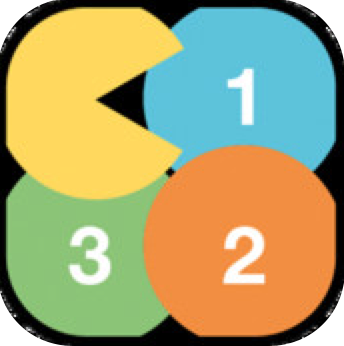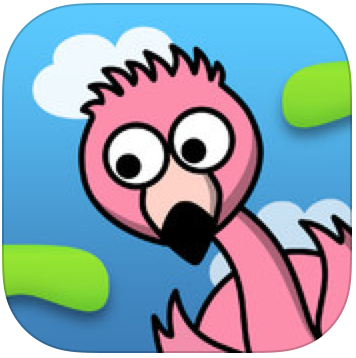One of mine masterstudents developed an educational app for google cardboard. The app is called Mathrallye and hopefully children enjoy the crazy game AND learning math. Feedback how it works would be much appreciated.
[publication] Use of Learning-Analytics-Applications in Mathematic with Elementary Learners #LearningAnalytics
Our paper about „Use of Learning-Analytics-Applications in Mathematic with Elementary Learners“ got published in the International Journal of Academic Research in Education.
Abstract:
This paper describes a study about the use of learning analytical applications in everyday school life. The research study took place in an Austrian secondary school during the mathematics courses. The subjects of the courses were the four basic arithmetical operations in the set of the natural numbers. All together two mathematics classes with 46 children at the age of 10 to 11 participated in this study. The aim was to test the usefulness of mathematics trainers, developed by the University of Technology in Graz, under real conditions. Therefore, one of the classes was determined as the experimental group, which studied with the mathematics trainers. The other class was set as the control group. This class operated with traditional exercise sheets. A pre-test and post-test control-group study indicated that the use of mathematics trainers does not decrease learning outcomes, but it points out other benefits during the whole learning arrangement. These advantages include error analysis, time saving in comparing the homework and enjoying the work with the trainers.
Reference: Ebner, M. & Pronegg, M. (2015). Use of Learning Analytics Applications in Mathematics with Elementary Learners. International Journal of Academic Research in Education, 1(2), 26‐39. DOI: 10.17985/ijare.37247
[publication] Mobile Applications for Math Education – How Should They Be Done?
My contribution about „Mobile Applications for Math Education – How Should They Be Done?“ as part of the book Mobile Learning and Mathematics. Foundations, Design, and Case Studies got published.
Abstract:
Math education in elementary schools is a necessity. In this publication we introduce different math applications for iPhone and iPad developed by students at Graz University of Technology. Both, the technical as well as the pedagogical strategy of these apps are described. Furthermore, a close look at the HCI guidelines are taken and finally enhanced with some crucial facts that in principle an app is able to serve as a learning app for elementary school children. It can be summarized that the successful use of math apps in classroom is more than just a playing with the first app that comes along; it is about a careful design of a didactical approach based on an appropriate learning strategy.
Mobile Applications for Math Education – How Should They Be Done? by Martin
Klicken Sie auf den unteren Button, um den Inhalt von www.scribd.com zu laden.
Reference: Ebner, M. (2015) Mobile Learning and Mathematics. Foundations, Design, and Case Studies. Crompton, H., Traxler, J. (ed.). Routledge. New York and London. pp. 20-32
btw, Happy Easter to all 🙂
[publication] Towards a Learning-Aware Application Guided by Hierarchical Classification of Learner Profiles #jucs
Our publication about „Towards a Learning-Aware Application Guided by Hierarchical Classification of Learner Profiles“ is published as part of the Special Issue on Learning Analytics.
Abstract:
Learner profiling is a methodology that draws a parallel from user profiling. Implicit feedback is often used in recommender systems to create and adapt user profiles. In this work the implicit feedback is based on the learner’s answering behaviour in the Android application UnlockYourBrain, which poses different basic mathematical questions to the learners. We introduce an analytical approach to model the learners‘ profile according to the learner’s answering behaviour. Furthermore, similar learner’s profiles are grouped together to construct a learning behaviour cluster. The choice of hierarchical clustering as a means of classification of learners‘ profiles derives from the observations of learners behaviour. This in turn reflects the similarities and subtle differences of learner behaviour, which are further analysed in more detail. Building awareness about the learner’s behaviour is the first and necessary step for future learning-aware applications.
Reference: Taraghi, B., Saranti, A., Ebner, M., Müller, V., Großmann, A. (2015) Towards a Learning-Aware Application Guided by Hierarchical Classification of Learner Profiles, Journal of Universal Computer Science, vol. 21, no. 1 (2015), 93-109
[publication] Determining the Causing Factors of Errors for Multiplication Problems
Our contribution about „Determining the Causing Factors of Errors for Multiplication Problems“ at this year European Immersive Education Summit is now online available.
Abstract:
Literature in the area of psychology and education provides domain knowledge to learning applications. This work detects the difficulty levels within a set of multiplication problems and analyses the dataset on different error types as described and determined in several pedagogical surveys and investigations. Our research sheds light to the impact of each error type in simple multiplication problems and the course of error types in problem-size.
Reference: Taraghi, B., Frey, M., Saranti, A., Ebner, M., Müller, V. & Großmann, A. (2014) Determining the Causing Factors of Errors for Multiplication Problems, European Immersive Education Summit, 2014, Vienna, pp. 144 – 153 [Link to article]
[publication] Adaptive Learner Profiling Provides the Optimal Sequence of Posed Basic Mathematical Problems
Our publication about „Adaptive Learner Profiling Provides the Optimal Sequence of Posed Basic Mathematical Problems“ at this year EC-TEL conference is now available.
Abstract:
Applications that try to enhance learners’ knowledge can profit by the creation and analysis of learner profiles. This work deals with the derivation of an optimal sequence of questions by comparing similar learning behaviour of users of a mathematics training application. The adaptation of the learners’ clusters to the answers of the revised optimal question sequence improves learning
Reference: Taraghi, B., Saranti, A., Ebner, M., Großmann, A., Müller, V. (2014) Adaptive Learner Profiling Provides the Optimal Sequence of Posed Basic Mathematical Problems. In: Open Learning and Teaching in Educational Communities. Rensing, C., de Freitas, S., Ley, T., Muñoz-Merino, P. J. (Ed.). Lecture Notes in Computer Science Volume 8719, Springer 2014, pp. 592-59
[poster] Learning Analytics und EPUB3
We are presenting two posters at this year EC-TEL conference in Graz. One is about Learning Analytics and one about the potential of eBooks:
Klicken Sie auf den unteren Button, um den Inhalt von www.slideshare.net zu laden.
Klicken Sie auf den unteren Button, um den Inhalt von www.slideshare.net zu laden.
[masterthesis] Eine Feldstudie zum Einsatz von problembasierten Lernvideos in einem offenen Mathematikunterricht
Thomas hat nun seine Masterarbeit erfolgreich verteidigt und dabei diese schöne Präsentation verwendet. Wer an der Arbeit an sich interessiert ist, der kann diese hier bestellen oder einfach unter https://itug.eu nachlesen:
Klicken Sie auf den unteren Button, um den Inhalt von www.slideshare.net zu laden.
[iPhone] CalcMan
 Im Rahmen unserer Vorlesung „Mobile Applications 2014“ ist die App CalcMan entstanden. Wir haben uns an das Arcadegame Pacman orientiert mit dem Unterschied, dass man zuerst eine einfache Rechnung lösen muss um die Monster fressen zu können. Hoffe es macht Spaß 🙂 :
Im Rahmen unserer Vorlesung „Mobile Applications 2014“ ist die App CalcMan entstanden. Wir haben uns an das Arcadegame Pacman orientiert mit dem Unterschied, dass man zuerst eine einfache Rechnung lösen muss um die Monster fressen zu können. Hoffe es macht Spaß 🙂 :
Das Konzept eines Retro-Spiels vereint mit Rechenaufgaben. Unser Spiel, basierend auf dem sehr bekannten PacMan erweitert dessen Funktionen um einen Rechenteil, der es Kindern ermöglicht, auf einfache und lustige Weise rechnen zu lernen.
Das Spiel läuft fast gleich wie das Original ab, mit dem einzigen Unterschied, dass auf dem Spielfeld eine Rechnung angezeigt wird, und man die richtige Lösung fressen muss. Wird die falsche Lösung gefressen, verfolgt einen ein zusätzlicher böser Geist.
Die App bietet neben drei verschiedenen Schwierigkeitsgraden Highscores und eine gut gestaltete Oberfläche.
[iPhone] Falling Flamingo Math
 Im Rahmen unserer Vorlesung „Mobile Applications 2014“ ist das Spiel Falling Flamingo entstanden. Also nicht nur, dass es schwer ist den Flamingo durch die Levels zu bringen, nein man darf auch noch mathematische Aufgaben lösen – also dann mal los 🙂
Im Rahmen unserer Vorlesung „Mobile Applications 2014“ ist das Spiel Falling Flamingo entstanden. Also nicht nur, dass es schwer ist den Flamingo durch die Levels zu bringen, nein man darf auch noch mathematische Aufgaben lösen – also dann mal los 🙂
Falling Flamingo Math ist ein iOS Spiel, welches dir dabei hilft deine Fähigkeiten im Kopfzurechnen spielerisch zu verbessern.
Du kannst zwischen 4 Schwierigkeitsgraden und 6 Charakteren wählen. Jeder Charakter hat unterschiedliche Eigenschaften. Das Ziel des Spiels ist es so lange wie möglich am Leben zu bleiben, indem du deinen Charakter durch die Plattformen nach unten navigierst und versuchst die Fragen richtig zu beantworten. Aber pass auf die Items auf! Manche Items helfen dir weiter zu kommen, aber andere machen dir das Leben schwer. Viel Spaß beim Spielen, Teilen und Herausfordern deiner Freunde via GameCenter.

